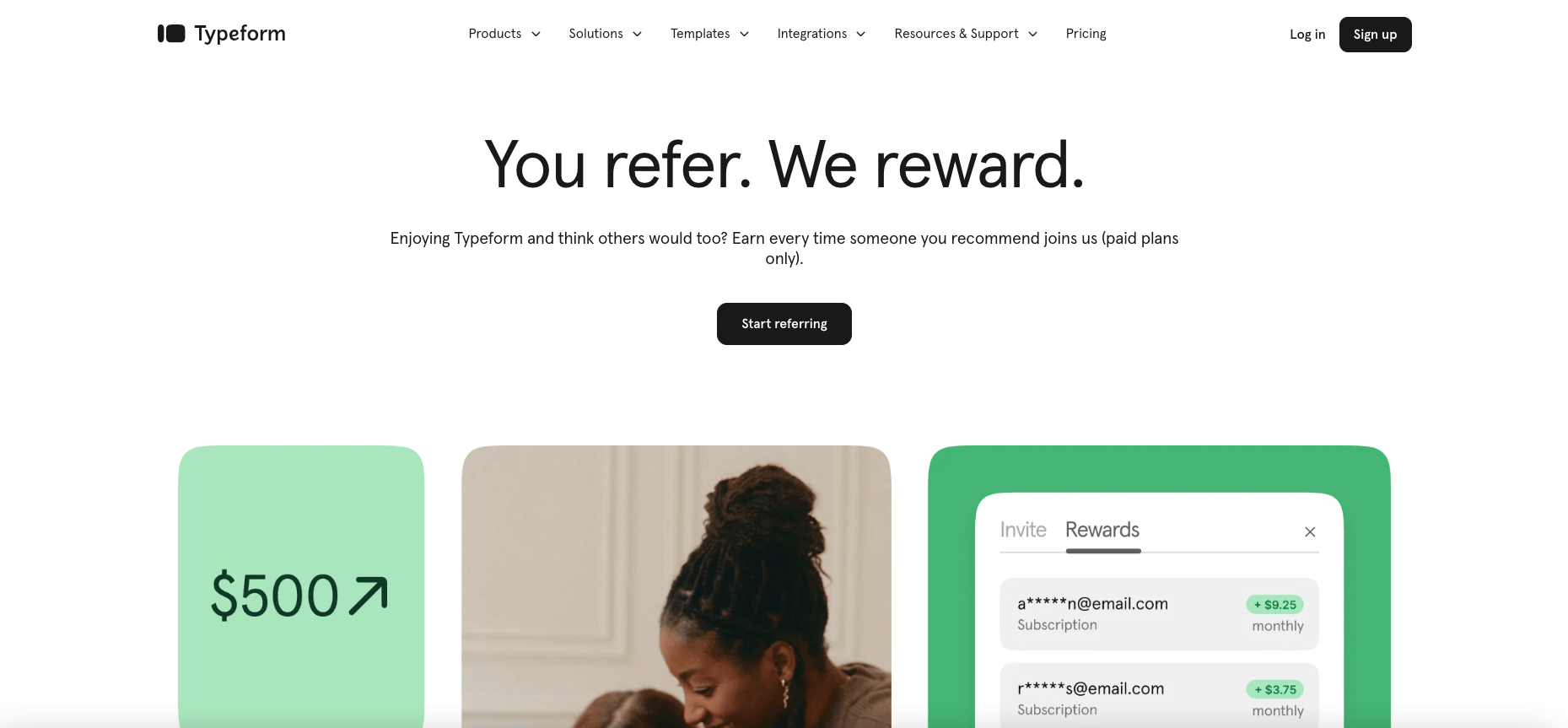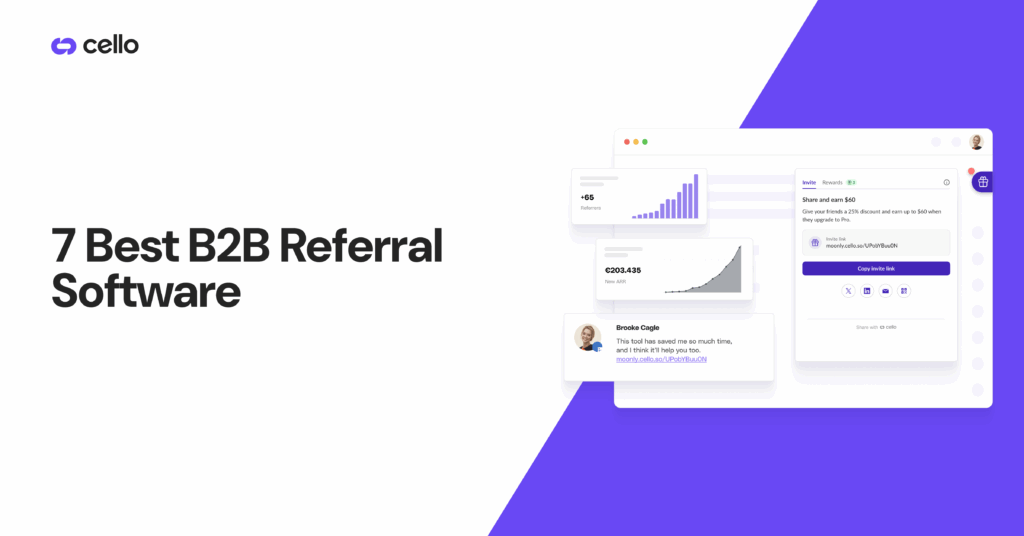Advocacy marketing has gained significant importance in today's business landscape. It is a powerful strategy that leverages the voice and influence of satisfied customers to promote a brand or product.
By cultivating a network of passionate advocates, businesses can unlock a world of opportunities for growth, reputation building, and customer loyalty.
To fully comprehend the potential of this type of marketing, it is crucial to understand its core principles, benefits, and implementation strategies.
Understanding the concept of advocacy marketing
Advocacy marketing, also known as referral marketing or word-of-mouth marketing, is a form of marketing that focuses on empowering satisfied customers to become brand advocates. It involves identifying individuals who are genuinely passionate about a brand and encouraging them to promote it to their social networks, friends, and family.
This form of marketing operates on the belief that personal recommendations and testimonials from trusted sources carry more weight and influence than traditional marketing efforts.
Advocacy marketing is a powerful strategy that has gained significant traction in recent years. It has become increasingly important for businesses to understand and harness the potential of this strategy to stay competitive in today's fast-paced and interconnected world.
The definition of advocacy marketing
| Key Element | Description | Tips for Optimization |
|---|---|---|
| Identifying Potential Advocates | Locating customers who are genuinely passionate about the brand and willing to share their enthusiasm. | Use customer surveys, social media monitoring, and referral encouragements to identify advocates. |
| Building Relationships with Advocates | Developing strong, trust-based relationships with identified brand advocates. | Offer exclusive perks and personalized experiences to maintain advocate loyalty and enthusiasm. |
| Encouraging Brand Promotion | Motivating advocates to actively promote the brand through various channels. | Provide tools, incentives, and referral programs to facilitate and amplify advocacy efforts. |
| Leveraging Social Media | Utilizing social platforms to maximize the reach and impact of advocacy marketing. | Create shareable content and encourage user-generated content to boost engagement. |
| Measuring Success | Tracking the effectiveness of advocacy marketing through various metrics. | Use KPIs like referral rates, customer acquisition costs, and brand sentiment for insights. |
Advocacy marketing, also referred to as referral marketing or word-of-mouth marketing, is a strategic approach that focuses on leveraging the power of satisfied customers to promote a brand. It involves identifying individuals who have had positive experiences with a brand and empowering them to share their experiences with others.
This type of marketing recognizes that personal recommendations and testimonials from trusted sources carry more weight and influence than traditional marketing efforts. By encouraging satisfied customers to become brand advocates, businesses can tap into the power of word-of-mouth marketing and leverage the influence of their most loyal customers to drive brand awareness and increase sales.
Advocacy marketing is not just about getting customers to talk about a brand; it is about building long-term relationships and fostering a sense of loyalty and trust.
By acknowledging and rewarding their loyal customers, businesses can strengthen their brand-customer relationships and create a community of advocates who are passionate about spreading the word.
The importance of advocacy marketing in today's business world
Sourcing brand advocates has emerged as a compelling strategy due to several factors.
- Consumers are increasingly turning to peers and online communities for recommendations and information before making purchase decisions. In a world where consumers are bombarded with advertisements and marketing messages, personal recommendations from trusted sources provide a sense of authenticity and credibility.
- The rise of social media has amplified the reach and impact of advocacy marketing. With platforms like Facebook, Instagram, and Twitter, advocates can easily share their experiences with a global audience, reaching far beyond their immediate social circles. This has made advocates a powerful tool for businesses looking to expand their reach and engage with new audiences.
- Advocacy marketing fosters stronger relationships between brands and customers by acknowledging and rewarding their loyalty and advocacy. By empowering customers to become brand advocates, businesses show that they value and appreciate their customers' support. This not only strengthens the bond between the brand and its customers but also encourages repeat purchases and long-term loyalty.
In conclusion, advocacy marketing is a strategic approach that focuses on leveraging the power of satisfied customers to promote a brand. It recognizes the influence of personal recommendations and testimonials from trusted sources and aims to build long-term relationships with customers.
The core elements of advocacy marketing
Identifying potential advocates
The first step in advocacy marketing is to identify potential advocates within your customer base. These individuals are passionate about your brand, have had positive experiences, and are willing to share their enthusiasm with others.
Identification can be done through customer surveys, social media monitoring, or by encouraging referrals. By pinpointing potential advocates, you can build relationships and nurture their enthusiasm for the brand.
Building strong relationships with advocates
Once potential advocates are identified, it is essential to cultivate strong relationships with them. Regular communication, exclusive perks, and personalized experiences can go a long way in maintaining their loyalty and enthusiasm.
Building trust and rapport with advocates is crucial to ensure their continued support and willingness to spread the word about your brand.
Encouraging advocates to promote your brand
While advocates may share their positive experiences organically, it is essential to provide them with the tools and incentives to amplify their efforts.
This can include referral programs, where advocates are rewarded for bringing in new customers, or providing them with exclusive content that they can share on their social media platforms. By facilitating and encouraging advocacy, you can harness the power of word-of-mouth and build a community of brand ambassadors.

The benefits of advocacy marketing
Increased brand awareness and visibility
Advocacy marketing can significantly boost brand awareness and visibility. When advocates share their positive experiences with others, it creates a ripple effect that reaches far beyond traditional marketing channels.
This increased exposure leads to heightened awareness and interest in your brand, attracting new customers and generating valuable word-of-mouth recommendations.
Improved customer loyalty and retention
Advocacy marketing plays a crucial role in enhancing customer loyalty and retention rates. By prioritizing relationships with advocates, businesses can foster a sense of belonging and appreciation within their customer base.
This, in turn, leads to greater customer satisfaction, increased repeat purchases, and decreased churn rates. Advocates become your trusted brand ambassadors, continuously reaffirming their loyalty and encouraging others to embrace your brand.
Enhanced credibility and trust
One of the undeniable advantages of advocacy marketing is its ability to enhance the credibility and trustworthiness of a brand. When recommendations come from real customers, rather than paid advertisements or celebrity endorsements, they carry a level of authenticity and trust.
This credibility reassures potential customers that your brand delivers on its promises and builds a strong foundation of trust.
Implementing advocacy marketing strategies
Creating a comprehensive advocacy marketing plan
Implementing advocacy marketing requires careful planning and strategizing. A comprehensive plan should outline objectives, target customers, preferred advocacy channels, and measures of success. It should also consider the resources, budget, and tools necessary to support the implementation and monitoring of advocacy marketing initiatives.
Leveraging social media for advocacy marketing
Social media platforms offer unparalleled opportunities for advocacy marketing. With millions of users actively engaged in sharing their experiences, brands can tap into this influential channel to amplify their advocacy efforts. By creating shareable content, encouraging user-generated content, and leveraging influencers, businesses can maximize their reach and impact in the digital space.
Measuring the success of your advocacy marketing efforts
Measuring the success of advocates is critical to understanding its impact and optimizing future initiatives. Key performance indicators (KPIs) such as referral rates, customer acquisition costs, brand sentiment, and customer retention rates can provide valuable insights into the effectiveness and ROI of advocacy marketing campaigns. Regular monitoring and analysis allow businesses to refine their strategies and ensure continuous improvement.
In conclusion, advocacy marketing has emerged as a potent strategy for businesses seeking to harness the power of their satisfied customers. By understanding the concept, core elements, and benefits of this form of marketing, businesses can unlock new avenues for growth, establish strong customer relationships, and build a credible and trusted brand presence. With careful planning and execution, advocacy marketing can propel businesses towards long-term success in today's competitive business world.
Transform your customers into growth engines with Cello
Ready to unlock the full potential of advocacy marketing for your SaaS product? Cello offers the simplest way to turn your users into a powerful growth channel. With seamless integration, automated rewards, and real-time performance tracking, Cello empowers you to launch a peer-to-peer referral program in just hours. Experience how brands like tl;dv have skyrocketed their monthly referral signups and witness the viral growth that awaits. Don't miss out on a user-led growth strategy that pays for itself from day one. Book a demo to see Cello in action and start your journey towards advocacy excellence.
Resources
Related Articles

7 Best B2B Referral Software (2025 Guide)
Which referral software should I choose? In the world of referral marketing, choosing the right ...

Scaling and Maintaining a B2B User Referral Program
Learn how to set the right incentives for B2B SaaS user referral programs

What are User Generated Content Growth Loops?
User Generated Growth (UGC) loop is a growth engine where users create content that attracts ...

